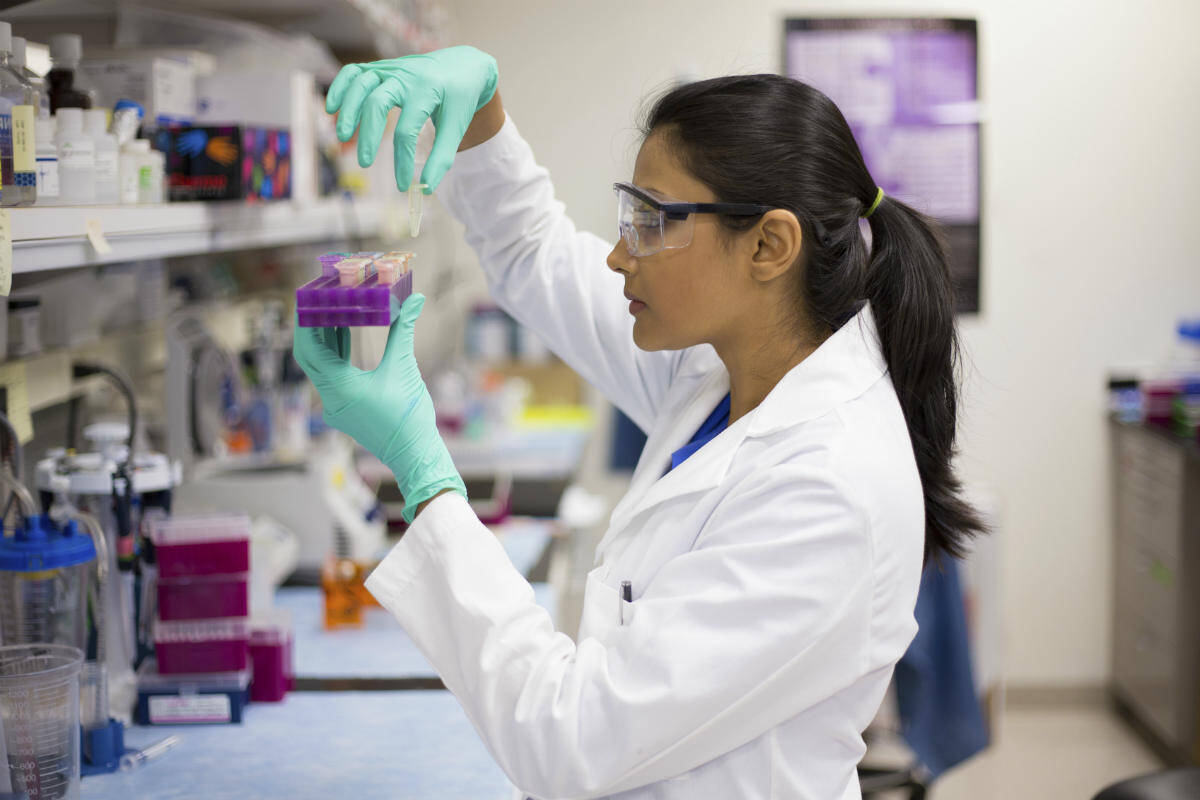In recent years, new diseases have made their way to the U.S. – Ebola and Zika are among the deadliest.

To counter these new found illnesses, lab workers are exposed through work on diagnostics, research, testing, and treatment. This, however, puts them at a higher risk of a workplace injury. According to OSHA, there are over 500,000 lab workers in the U.S.
OSHA Guidelines for Lab Safety
Lab workers face a wide range of workplace hazards that may result in workers’ compensation claims. Some of these include biological and chemical risks and musculoskeletal injuries caused by repetitive motion. OSHA has established standards for laboratories, approaches to biological and radioactive threats, and a broader approach to the safety of lab workers. OSHA’s Lab Safety Guidance addresses a number of issues, including:
- hazardous chemicals
- blood-bourne pathogens
- personal protective equipment
- eye and face protection standards
- hand protection standards
- respiratory protection standards
Protecting Lab Workers
It is important for employers to provide their workers with information and training relevant to the hazards that they face every day at their workplace. This training should be provided at the time the worker’s assignment starts and before any assignment that involves a new exposure. Lab workers should also have access to the federal regulatory standards for lab practices. They should also be made aware of the exposure limits to chemicals and other hazards. Workers should be told how to monitor exposure levels and the procedures followed once safe levels are exceeded.
If a lab worker has latex allergies, labs are required to provide alternate solutions. Labs are also required to provide adequate protection from some of the serious biological hazards that lab workers may face, including:
- Anthrax
- Plague
- Avian Flu
- Severe Acute Respiratory Syndrome (SARS)
- Ricin
- Botulism
- Smallpox
- Hantavirus
- Foodborne diseases
- Legionnaires’ disease
- Viral Hemorrhagic Fever
- Tularemia
- Pandemic Influenza
Labs are required to ensure proper labeling of containers and employ proper methods of handling and decontamination. This also applies to labs that handle research animals. In these labs, workers may be exposed to bites, infected tissue, fluids, and scratches. Labs also need to address the ergonomic hazards that are caused by repetitive motion injuries occurring during routine work such as operating microtomes, using keyboards, or working with pipetting and microscopes.
Workers’ Compensation Benefits for Lab Workers
If you are a lab worker who has been injured in a workplace accident, developed an occupational illness due to chemical or biological exposure, or suffered a repetitive motion injury due to your routine work, you may be entitled to workers’ compensation benefits. Consult a St. Louis worker compensation lawyer to know more about your legal rights. Call The Law Office of James M. Hoffmann at (314) 361-4300 for a free consultation.
Workers & Industry
Workers | Industry
Airline Injuries
Auto Mechanic Injuries
Baggage Handler injuries
Bricklayer Injuries
Building Construction Injury
Carpenter Injury
Chemical Plant Accident
Coal Mining Accident
Commercial Food Industry Work Injury
Commercial Truck Accident
Concrete Worker Accident
Construction Accident
Cosmetologist Work Injury
Electric Company Workers Injured
Injured Electrical Worker
Electrician Accident
Elevator Worker Accident
Factory Accident
Farm Accident
FedEx Truck Accident
Firefighter Injuries
Processing Plant Injuries
Government Workers Comp
Healthcare Injuries
Injured Work From Home
Hospital Work Injury
Hotel Workers Injuries
Industrial Workplace Accidents
Iron Worker Accident
Janitor Injuries
Union Worker Accidents
Laboratory Accident
Manufacturing Injuries
Meat Packing Injuries
Metal Fabrication Accidents
Mining Accident
Working Multiple Jobs
Nail Salon Work Injury
Work-Related Accidents on Night Shift
Nurse Injured at Work
Nursing Home Workers Injury
Office Accident
Oil Field Injury
Outdoor Workers Injured
Pipe Fitter Occupational Injury
Plumber Accident
Post Office Accident
Poultry Work Injury
Public Safety Officer Injuries
Railroad Worker Injuries
Recycling Plant Accidents
Restaurant Injury
Retail Accidents
Road Construction Accident
Roofing Accident
Sanitation Worker Injuries
Seasonal Worker Injured
Security Accident
Sewer Accidents
Summer Job Work Injury
Teacher Injured
Textile Mill Accidents
Transit Workers Accident
Truck Driver Injuries
Underground Mining Accidents
Utility Worker Accident
Veterinarian Injured
Warehouse Injuries
Window Cleaner Accident
